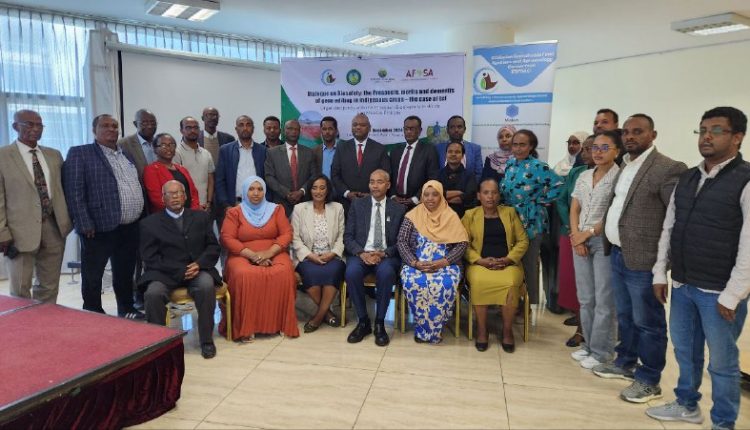Experts Stress Importance of Preserving Teff Crop for Economic and Social Advancement
Addis Ababa, December 30, 2024 (FMC) – The Ethiopian Sustainable Food Systems and Agroecology Consortium (ESFSAC), in partnership with the Ethiopian Biodiversity Institute (EBI) and MELCA Ethiopia, recently convened a dialogue titled “Biodiversity: The Prospects, Merits, and Demerits of Gene Editing in Indigenous Crops – The Case of Teff (Eragrostis Tef).”
The event brought together policymakers, researchers, academics, and representatives from civil society to discuss the potential and challenges associated with gene editing in teff, Ethiopia’s vital staple crop.
In his opening remarks, the Chairperson of the Agricultural Standing Committee in the House of Peoples Representatives, Tesfaye Lale, emphasized Ethiopia’s rich biodiversity, urging unified efforts to protect and preserve these resources for the benefit of local communities.
Experts underscored Ethiopia’s endeavors to maintain the unique genetic diversity of teff while exploring gene editing technologies that could enhance productivity and resilience without compromising the crop’s indigenous heritage.
Sessions included discussions on the regulatory and ethical implications of introducing gene-edited crops, with presentations that addressed biosafety issues, potential unintended consequences, and the importance of Ethiopia’s Biosafety Proclamation in ensuring responsible gene editing practices.
Participants highlighted the need for strengthening institutional capacities and fostering collaboration among policymakers, researchers, and regulatory bodies to promote sustainable agricultural practices.
The dialogue aimed to gather insights from experts and stakeholders to inform Ethiopia’s strategies for sustainable agriculture while preserving biodiversity and addressing biosafety concerns.
Dr. Bayush Tsegaye, Executive Director of ESFSAC, stated that the platform is essential for assessing the impact of gene-editing technologies and their implications for the environment and local livelihoods. As the native home of the teff crop, she emphasized the collaborative efforts of experts, research institutions, and the EBI in conserving and passing on teff seeds for future generations, underscoring its economic benefits.
She further noted that promoting and preserving teff could help Ethiopia tap into its potential by exporting the crop to international markets.
During the event, it was highlighted that the Ethiopian Biodiversity Institute, recognized as Africa’s largest and oldest seed bank, preserves approximately 6,000 distinct varieties of teff.


